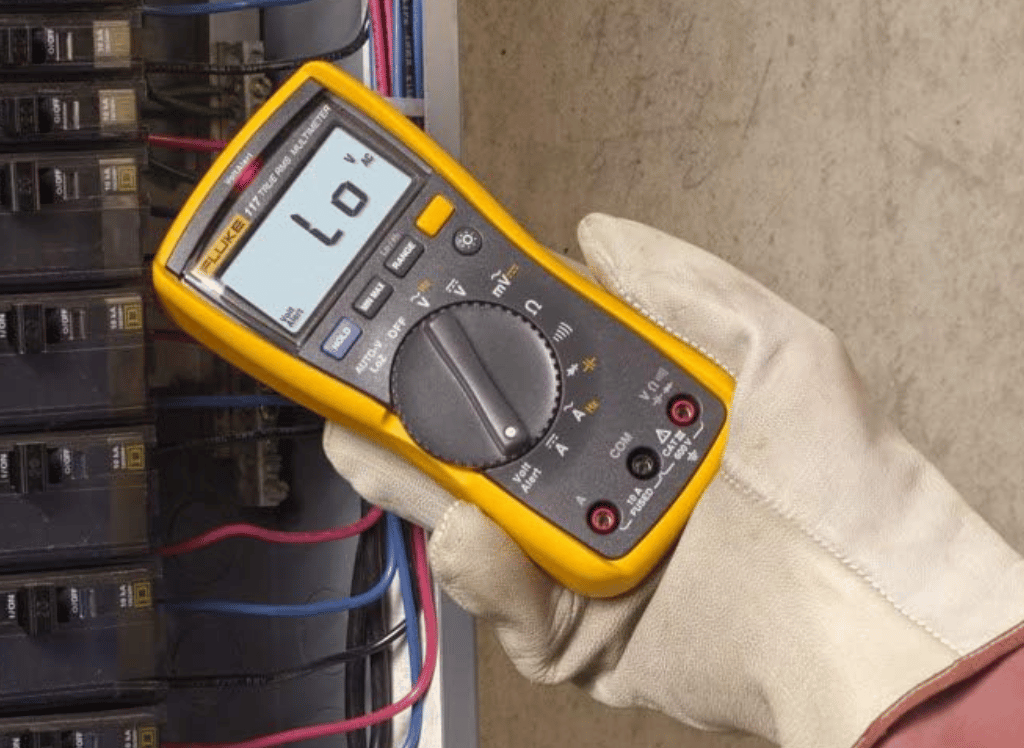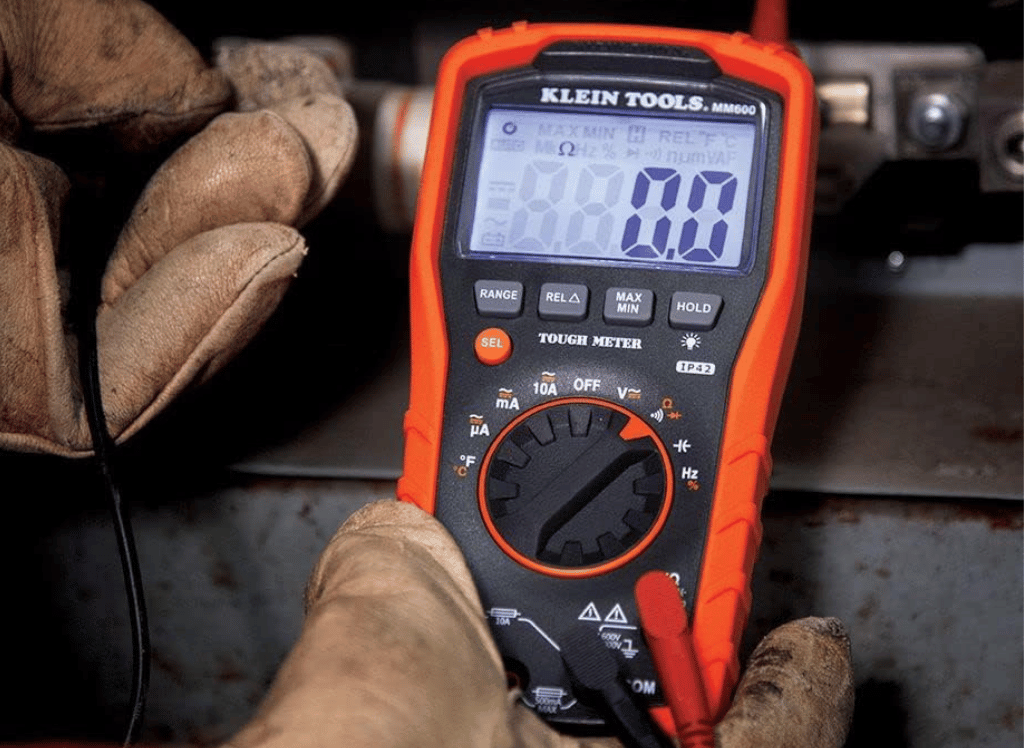Best Automotive Multimeter: A Product Review
Our team has put together this review of the best automotive multimeters so that you can make an informed decision before you buy.
When looking for a multimeter, you must consider what application you will inspect. Automotive multimeters measure specific aspects of a car's electrical system. There are many different features to look for when choosing a suitable automotive multimeter, such as durability and accuracy.
How Mechanicaddicts Choose Automotive Multimeters: There Are Two Main Types: Analog and Digital Auto-Ranging
Multimeters display the measured value in digits, while analog multimeters use a needle to indicate the voltage or current magnitude. Auto-ranging multimeters automatically select the appropriate range for the measurement, so you don't have to worry about choosing the correct range. This function can be helpful when making quick measurements.
What We Like About This Automotive Multimeter
The fluke 117 auto-ranging digital multimeter is known for its accuracy. It is specified for one year after calibration at operating temperatures of 18 °C to 28 °C, with a relative humidity of 0 % to 90 %.
The accuracy specifications take the form of ± ( [ % of reading ] + [ counts ] ). The fluke 117 is one of the best automotive fluke multimeters on the market today. The digital Multimeter has a maximum voltage between any terminal and earth ground of 600 V. The included 9-volt Alkaline battery life typically will last 400 hours without a backlight.
Finally, the fluke 117 comes with TL75 Test probes to backtest electrical connections, a holster, a User's manual, and a 9 V battery (installed) in a storage case. This digital Multimeter is an auto-ranging digital multimeter with millisecond pulse width measurements and duty cycle functions. This digital Multimeter is capable of measuring temperature readings. This truly is a top automotive fluke multimeter on the market today.
What You Should Know About This Product
The Fluke 117 Multimeter is a versatile and user-friendly device perfect for many applications. This automotive Multimeter has many features that make it ideal for use in both industrial and residential settings.
The VoltAlert technology allows for non-contact voltage detection, while the AutoVolt function automatically switches between ac and dc voltage measurements. The LoZ function helps prevent false readings due to ghost voltage, and the large white LED backlight allows use in poorly lit areas.
The Multimeter also features true-RMS for accurate measurements of non-linear loads and resistance, continuity, frequency, and capacitance measurement functions. In addition, the min/max/average recording feature helps to track signal fluctuations over time.
The Multimeter is also compatible with the optional magnetic hanger (ToolPak) for hands-free operation. Finally, the Multimeter is CAT III 600 V safety rated for added peace of mind.
The Fluke 117 Multimeter is one of the best automotive multimeters to measure voltage, current, and resistance. It also features non-contact AC voltage detection and automatic AC/DC voltage selection. The fluke multimeter has a low impedance mode to help reduce interference when making measurements.
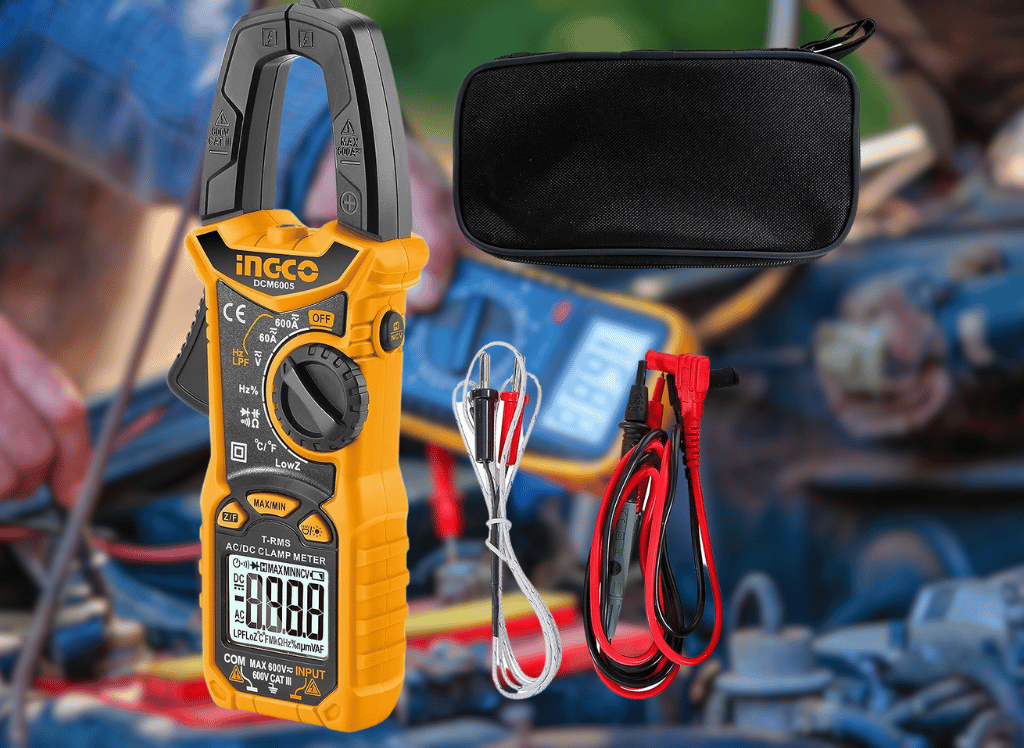
INGCO Auto Ranging Digital Clamp Meter
Best Auto-Ranging Clamp Meter Multimeter
What We Like About This Automotive Digital Multimeter
This is an excellent compact multimeter with a great design. This auto-ranging digital Multimeter is equipped ac dc voltage range with true RMS and a fantastic LCD display.
This handy tool is for auto mechanics supplied with attachable test leads for measurement purposes. His particular digital Multimeter is not equipped to read temperature readings. This is an excellent meter to solve automotive electrical problems. this is a good automotive multimeter to measure dc current and has auto-ranging modes.
What You Should Know About This Product
The best automotive multimeters are known for their accuracy and reliability. The AC DC Digital Clamp Meter is one of the best on the market, with a 6000-count display and AC of 60A/600A/1000A. Additionally, it features AC voltage of 60mV/600mV/6V/60V/600V, DC voltage of 60mV/600mV/6V/60V/600V, and resistance of 600Ω/6kΩ/60kΩ/600kΩ/6MΩ.
This product also has a frequency of 0~ 10KHz, making it perfect for various applications. Finally, the Data Hold function ensures that you can always have accurate readings, and the Display Backlight makes it easy to read even in low light conditions.
With a lifetime warranty and a 600-volt safety rating, you can be sure that this product will provide years of reliable service.
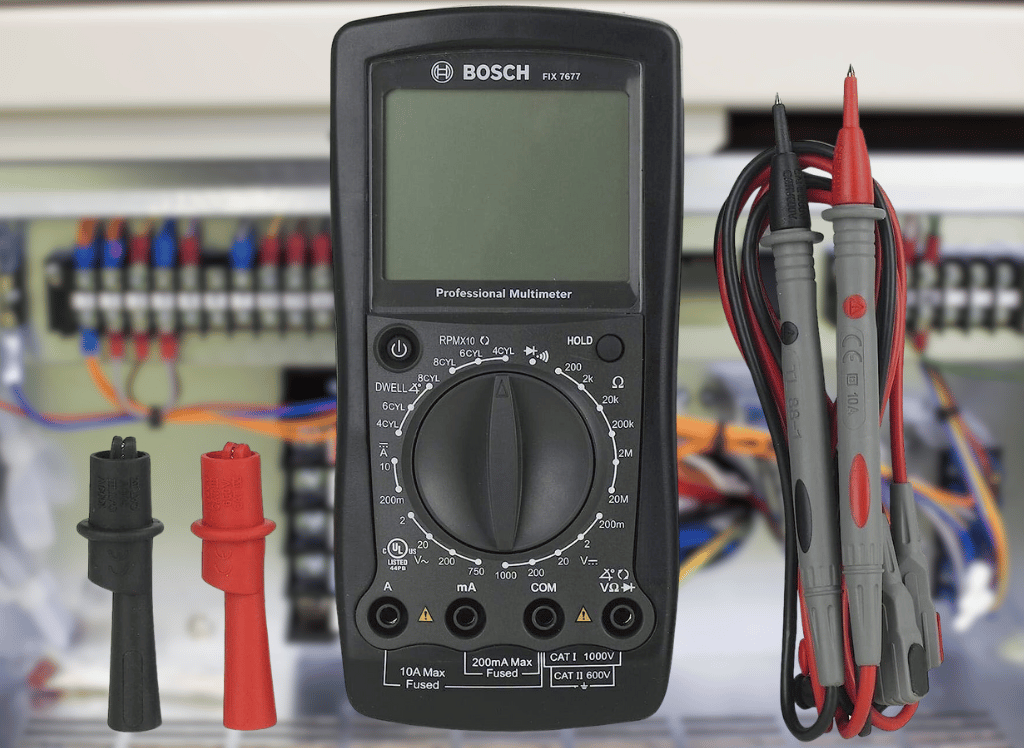
Bosch (FIX 7677 Professional Multimeter
Best for Automatic Reverse Polarity Indication and Automatic Zero Adjust
What We Like About This Automotive Digital Multimeter
Automotive engines are complex machines with a lot of moving parts. o keep them running smoothly, they rely on many systems, including the ignition system, the fuel delivery system, and the starting and charging system. When one of these systems fails, it can cause severe problems for the engine. That's why it's essential to test them regularly.
An automotive multimeter with an automatic range feature is an excellent tool for testing these systems. t features an easy-to-read digital LCD display, on-screen test lead connection reminders, and automatic reverse polarity indication.
It also has overload protection on all ranges and comes with a protective boot, detachable color-coded test leads, alligator clips, and detailed instructions. With the Multimeter, you can quickly locate faulty wiring and components to fix the problem before it causes severe damage to your engine.
What You Should Know About This Product
Bosch's professional level meter is a highly versatile tool that performs all standard and automotive-specific electrical tests for on-car and on-bench troubleshooting. t features an extra-large, easy-to-read digital LCD screen display with an on-screen test leads connection reminder, automatic reverse polarity indication, and low battery indicator.
The meters are switchable between 4, 6, and 8-cylinder modes and have automatic zero adjustments, overload protection on all ranges, and 10 MΩ impedance. Bosch's meter is perfect for testing starting and charging systems, ignition, and fuel delivery systems and helps locate faulty wiring and components. t is UL or ETL listed and meets all industry standards.
As any professional knows, a reliable and accurate multimeter is essential for any job. Bosch's FIX 7677 auto-ranging automotive Multimeters are a top-of-the-line choice that includes everything you need to start.
The set consists of a protective boot, fold-out stand, detachable color-coded test leads, alligator clips, a quick start guide, and detailed downloadable instructions with test procedures, diagrams, and more in English, Spanish, and French. plus, the Bosch multimeter is backed by a one-year warranty.
And because it runs on a single 9V battery (not included), you can take it wherever you go. Whether you're a professional technician or a DIY enthusiast, Bosch's FIX 7677 Professional Multimeter is the perfect choice for all your multimeter needs.
What We Like About This Automotive Digital Multimeter
The Klein Tools MM600 is an automatic, manual-ranging digital multimeter that measures AC/DC voltage, AC/DC current, and resistance.
It can also measure temperature, capacitance, frequency, duty cycle, test diodes, and continuity. exclusively designed from the ground up by electricians for electricians.
Years of field research, combined with extensive input from electricians across America, inspired the development of meters loaded with innovative, time-saving features.
One such feature is the manual-ranging capability. his allows the user to select the range for the measurement, making it more accurate. additionally, the meter has a hold function that allows the user to take a reading and then hold it on the screen for easy reference.
The backlit LCD screen is easily read in low light conditions, and the built-in stand allows for hands-free use. Another time-saving feature is the built-in temperature sensor which eliminates the need for a separate thermometer. overall, the Klein Tools MM600 is a versatile and user-friendly multimeter that is an essential tool for automotive use and for any electrician.
What You Should Know About This Product
The ac dc voltage, duty cycle, and accurate readings make this a great digital multimeter with an auto-ranging feature for use in basic and controlled electromagnetic environments such as residential, business, and light-industrial locations.
This Klein tools multimeter has a CAT IV 600V / CAT III 1000V safety rating, is built to endure a 6.6-foot (2 m) drop, withstand daily wear and tear on the job site, and has a low battery indicator and easily accessible battery, and fuse replacement compartment. Additionally, it comes with a carrying pouch, test leads, alligator clips, a thermocouple with adapter, and batteries.
Whether you are a professional electrician or need a reliable way to test household circuits, this Klein tools multimeter is an excellent choice.
Complete Automotive Multimeter FAQs
1. What Is an Auto-Ranging Automotive Multimeter?
When you're working with electricity, it's important to have the right tools for the job. a multimeter is one of the most essential tools, which measures voltage, current, and resistance.
While basic multimeters require you to manually change the range setting, more advanced models are automatic ranging meters, which automatically adjust the range to get a more accurate reading. n some cases, an automatic ranging meter with an auto-ranging feature can be a lifesaver.
For example, if you're trying to measure the voltage of a live circuit, auto-ranging can help to prevent accidental shocks. f you're working with sensitive equipment, it's always best to double-check your readings with a manual multimeter.
2. Should I Get an Auto-Ranging Multimeter?
Anyone who has ever used a multimeter knows that one of the most important features is the ability to automatically range or auto range. An auto range multimeter is a great advantage over a manual range Multimeter because it saves you the hassle of knowing which range of value the resistance, capacitance, voltage, or whatever electrical characteristic you're finding falls under.
The Multimeter finds value for you. This can be a huge time saver, especially when you're trying to take measurements in a hurry. n addition, the automatic ranging feature can help to prevent errors by ensuring that you're always using the correct range. s a result, it's no wonder this multimeter function is one of the most popular features of multimeters.
3. What Does RMS Mean on a Multimeter?
Many electrical signals are not perfect sinusoidal waves. Instead, they are nonsinusoidal, meaning they have different shapes. When dealing with AC signals, it is important to be able to accurately measure the root-mean-square, or RMS, value.
This is the equivalent DC value of an AC waveform. true-RMS meter is designed to take these imperfect waveforms into account and give a more accurate reading. s a result, true-RMS meters are essential for many applications, such as measuring the power consumption of an appliance or the amount of AC current flowing through a circuit.
4. What Should I Look For in a Multimeter?
When choosing a multimeter, the three most important features to look for are the ability to select a range of voltages, measure AC and DC voltages, and measure ohms.
The reason it is important to be able to select a range of voltages is that different devices operate at different voltages, so you need to be able to adjust the Multimeter accordingly. Measuring both AC and DC voltages is also important because many devices use both types of power.
Finally, measuring ohms is important because it allows you to troubleshoot electrical circuits by checking for continuity and other electrical issues. y taking these features into account, you can be sure to choose a multimeter that will suit your needs.
5. What Are the Different Types of Multimeters?
An analog multimeter uses a pointer and scale to display readings, while a digital multimeter uses a numeric display. clamp-type Multimeters can measure current without breaking the circuit, while an auto-ranging type multimeter automatically selects the appropriate range.
multimeters can be used to measure voltage, current, and resistance and are essential tools for electrical engineers to use multimeters to diagnose and troubleshoot electrical problems. lamp-type multimeters are particularly useful for measuring currents because they can be attached to a conductor without interrupting the circuit.
auto-ranging type multimeters are useful because they automatically select the appropriate range, which saves time and prevents errors. both analog and digital multimeters have their advantages and disadvantages, but they are both essential tools for electrical engineers.
6. Is a Multimeter Worth Having?
Anyone who has worked with electronics knows that a multimeter is an essential tool. but not all multimeters are created equal. inexpensive models may be fine for occasional home use, but they will quickly break down in an industrial setting. similarly, higher-end models may be too expensive for the average home user; what's the best choice?
Generally, it is worth investing in a quality multimeter, even if you have to wait for a sale or price reduction. A good Multimeter will last longer and more accurately diagnose electrical issues than a cheap one, and while you might get by with a less expensive model for occasional home use, it's always better to have a reliable tool when working with electronics. o if you can afford it, go for a quality meter - you'll be glad you did.
7. How Do I Test a Car Battery With a Multimeter?
Connect the Multimeter to the positive and negative battery terminals. f you don't have a voltage of around 12.6 volts, you may have a bad battery. ow start the car, and look for a revised voltage over 10. f your voltage drops below 5 when the car runs, it is bad and should be replaced immediately.
8. How Can You Tell if a Diode Is Blown?
If there is an open circuit in both directions, the alternator diodes have failed with an open circuit. The diode may have failed with a short if there is low resistance in both directions. n both cases, the diode should be replaced.
9. What Should a 12-Volt Battery Read When Fully Charged?
As any car owner knows, a battery is an essential component of any vehicle. Without a battery, a car wouldn't be able to start.
However, batteries don't last forever, and it's important to regularly check their condition to ensure that they are in good shape. One way to do this is to use a voltmeter. A fully charged battery typically displays a voltmeter reading of about 12.6 to 12.8 volts.
If your voltmeter shows a voltage between 12.4 and 12.8, your battery is in good shape. If your voltage is above 12.9 volts is a good indicator that your battery has excessive voltage. By checking the reading on your voltmeter, you can know how well your battery performs and replace it before it dies completely.
10. What Does a Digital Multimeter Not Measure?
Multimeters cannot be used to measure electrical quantities such as frequency, charge, etc. the Multimeter has multi functionalities, it acts like an ammeter, voltmeter, and ohmmeter. It is a handheld device with positive and negative indicator needles over a numeric LCD digital display.
11. How Do I Choose the Best Automotive Multimeters on the Market for Your Needs
When choosing a suitable automotive digital multimeter, there are a few factors to consider. The first is what you will use the Multimeter to diagnose.
Automotive multimeters measure specific aspects of a car's electrical system. There are many different features to look for when choosing a suitable automotive multimeter, such as durability and accuracy as well as duty cycle, dc voltage, auto-ranging quality, overload protection, and manual ranging multimeter.
Another critical factor is the type of automotive Multimeter. There are two main types: analog and digital. Analog automotive multimeters use a needle to measure current, voltage, and resistance.
Digital automotive multimeters use a digital screen to display measurements. Some people prefer analog automotive multimeters because they are more durable and have a longer lifespan than digital ones. However, digital automotive multimeters are more accurate and easier to read when looking at electronic measurements.
The last factor to consider when choosing an automotive multimeter is price. Automotive multimeters can range in price from $10 to $200. Finding one that fits your budget while also meeting your needs is crucial.
When choosing a suitable automotive multimeter, you must consider what you will use it for, the type of automotive Multimeter, and the price. Considering these factors, you can find the best automotive Multimeter for your needs.
When buying an automotive multimeter, you must consider what you will diagnose. There are many multimeters, each designed to measure different aspects of electricity. Evaluating the accuracy and durability of the Multimeter you want to purchase is also necessary.
Another factor to consider is the multimeters' price range, which can vary significantly. Considering all these factors, you will indeed find the Multimeter with auto-ranging scales that is perfect for your needs.
12. What Is a Multimeter, and What Can It Be Used For?
A multimeter is an electronic device that measures electrical properties such as voltage, current, and resistance. You can use multimeters for a variety of tasks in automotive repair, including:
- Measuring the voltage of a battery
- Determining the current draw of a component
- Checking for continuity in a circuit
- Locating shorts in a wiring harness
13. How to Use a Multimeter for Automotive Purposes
You first adjusted the Multimeter to the correct measurement type. For example, if measuring voltage, ensure the meter is in volts (V) mode. Next, connect the probes to the points you want to measure.
The black probe goes on the negative side of the circuit, and the red probe goes on the positive side. Be sure not to touch either probe together while completing your inspection of a circuit or part, as this will produce an inaccurate measurement.
Once everything is connected, take a reading by pressing the "measure" button on the meter. The meter will then display either a numerical value or a graphical representation of the measurement.
14. How to Choose the Suitable Multimeter for Your Project?
When choosing a multimeter, it's essential to consider the types of measurements you'll need to make. You'll typically need an automotive multimeter to measure voltage, current, and resistance for automotive electrical issues.
You'll also want to consider the size and durability of the meter. A small, handheld meter is easy to transport and can be used for quick measurements. However, it may not be as durable as a larger meter.
15. What Factors to Consider When Choosing the Best Automotive Multimeter?
When choosing some of the best automotive multimeters available, it's essential to consider the following factors:
- The types of measurements you'll need to make
- The size and durability of the meter
- The price of the meter
16. What Are Some Tips for Using a Multimeter Safely and Common Issues?
- When making measurements, always disconnect the power from the circuit first.
- Do not touch either test leads to each other, as this will produce an inaccurate measurement when inspecting resistance.
- Be careful not to drop or damage the meter, as this can damage the meter. Common Problems With Automotive Electronics and How to Fix Them:
Automotive electronics can be susceptible to a variety of issues. The most common problems are:
- Dead batteries
- Blown fuses
- Corroded battery terminals
- Bad alternators
- Loose or corroded wiring connections
17. When Do You Use a Multimeter to Inspect Automotive Electronics?
When testing automotive electronics, it's essential to use a meter that can measure voltage, current, and resistance and generate accurate readings. The meter should also be in the correct measurement range and mode with an automatic ranging feature and duty cycle function, as well as an ac dc voltage function for the type of measurement you're making.
When conducting a voltage reading, connect the black probe to the negative side of the circuit and the red probe to the positive side. Be sure not to touch either probe each other. Press the "measure" button on the meter and take a reading. The meter will display either a numerical value or a graphical representation of the measurement on the LCD display screen.
To take a current reading, connect the black probe to the negative side of the circuit and the red probe to the positive side. Be sure not to touch either probe each other. Do not disconnect any wires while taking a current reading. Press the "measure" button on the meter and take a reading. The meter will display either a numerical value or a graphical representation of the measurement.
To take a resistance reading, connect the black probe to one end of the resistor and the red probe to the other end of the resistor. Be sure not to touch either probe each other. Press the "measure" button on the meter and take a reading. The meter will display either a numerical value or a graphical representation of the measurement.
18. What Works Best for You?
Multimeters are essential tools for electrical engineers and hobbyists alike. They can be used to measure voltage, current, and resistance. There are a variety of multimeters on the market, so it's important to do your research before purchasing one.
Inexpensive models may be fine for occasional home use, but they will quickly break down in an industrial setting. Similarly, higher-end models may be too expensive for the average home user. So what's the best choice? generally, it is worth investing in a quality multimeter, even if you have to wait for a sale or price reduction.
A good Multimeter will last longer and more accurately diagnose electrical issues than a cheap one. And while you might get by with a less expensive model for occasional home use, it's always better to have a reliable piece of equipment when working with electricity.
Our Final Thoughts
Any of the models we have reviewed would be a good choice if you are in the market for an automotive multimeter. all of them are accurate and easy to use, and they offer a variety of features that will come in handy when working on cars.
However, there are a few things to remember when making your decision. First, think about what features are most important to you. for example, if you do a lot of work on electrical systems, you might want a model with a built-in ammeter.
On the other hand, a model with a built-in tachometer might be more useful if you mainly work on engines. second, consider your budget. automotive digital multimeters can range in price from around $50 to over $200.
Finally, make sure to buy from a reputable brand. There are a lot of cheap knockoffs on the market, and they are not worth the money. With these factors in mind, you should have no trouble finding the perfect automotive digital Multimeter for your needs.
#Automotive #Multimeter #CarMaintenance #Diagnostics #VehicleRepair #AutoTools #ElectricalTesting #DIYAuto #MechanicTools #PrecisionMeasurements
Thanks for stopping by
Your friend
Todd
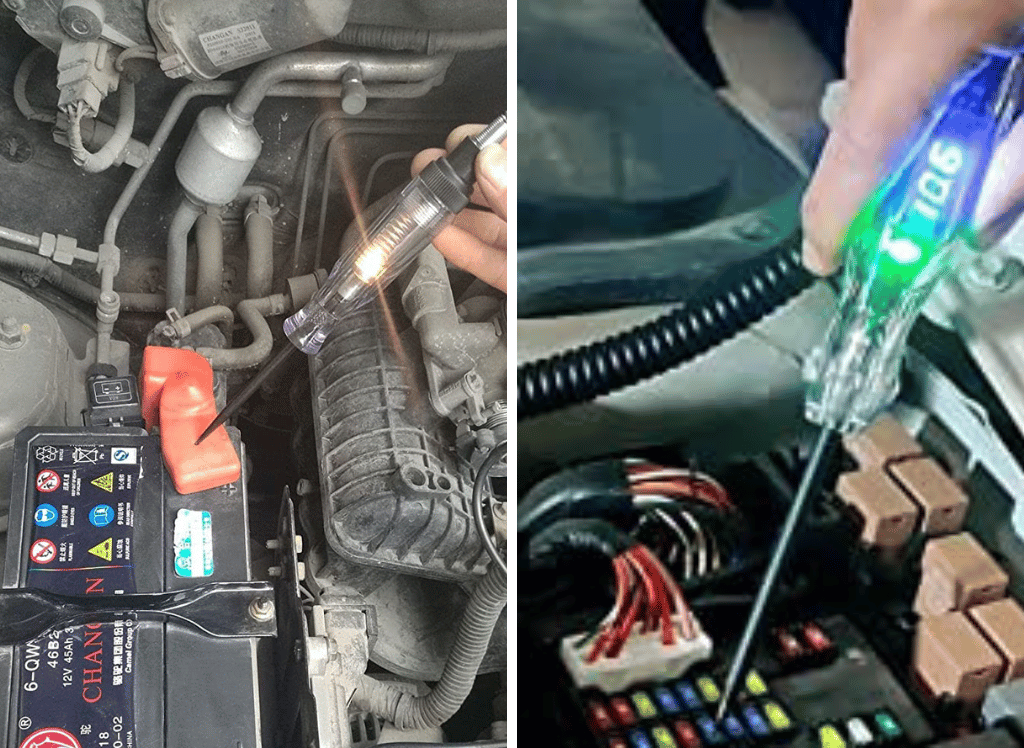
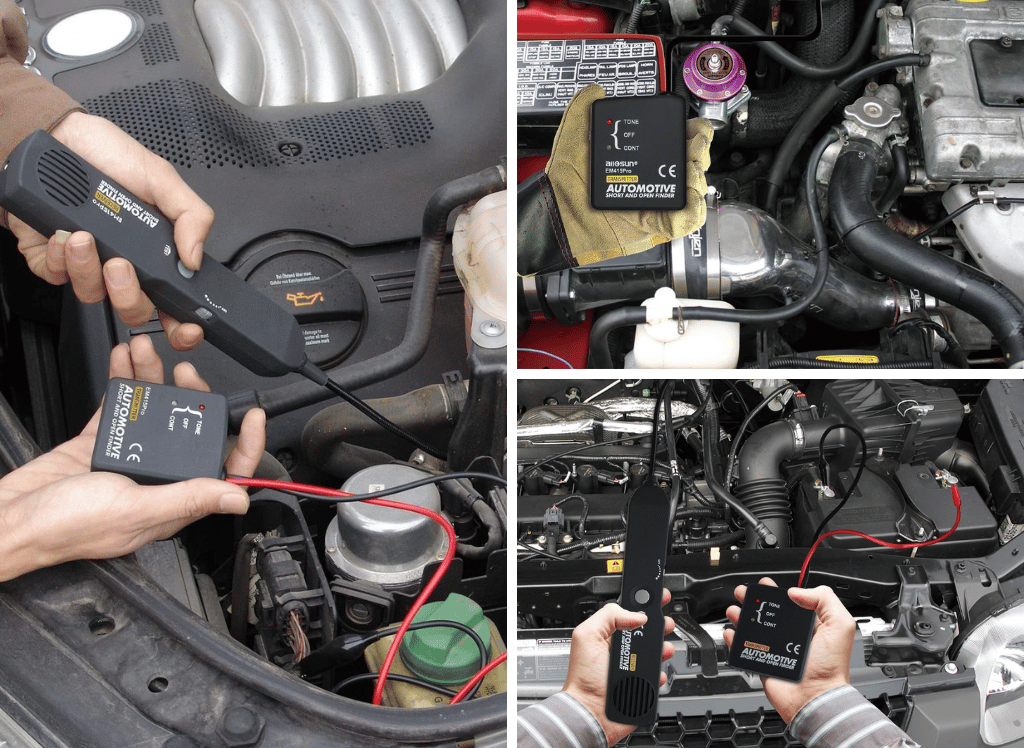
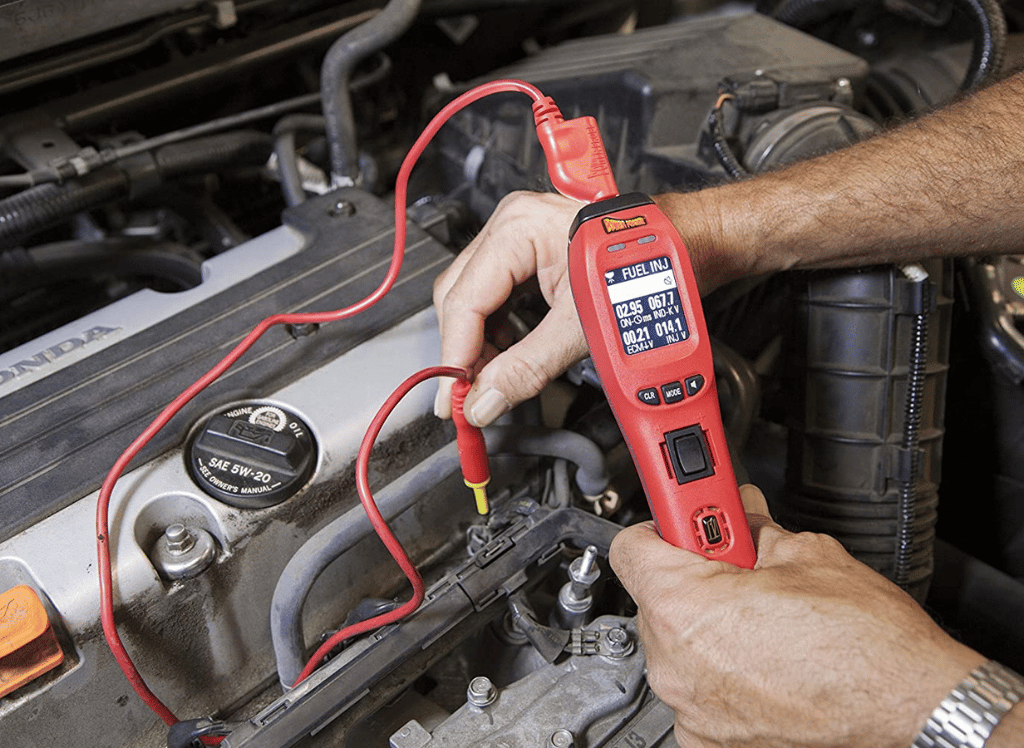
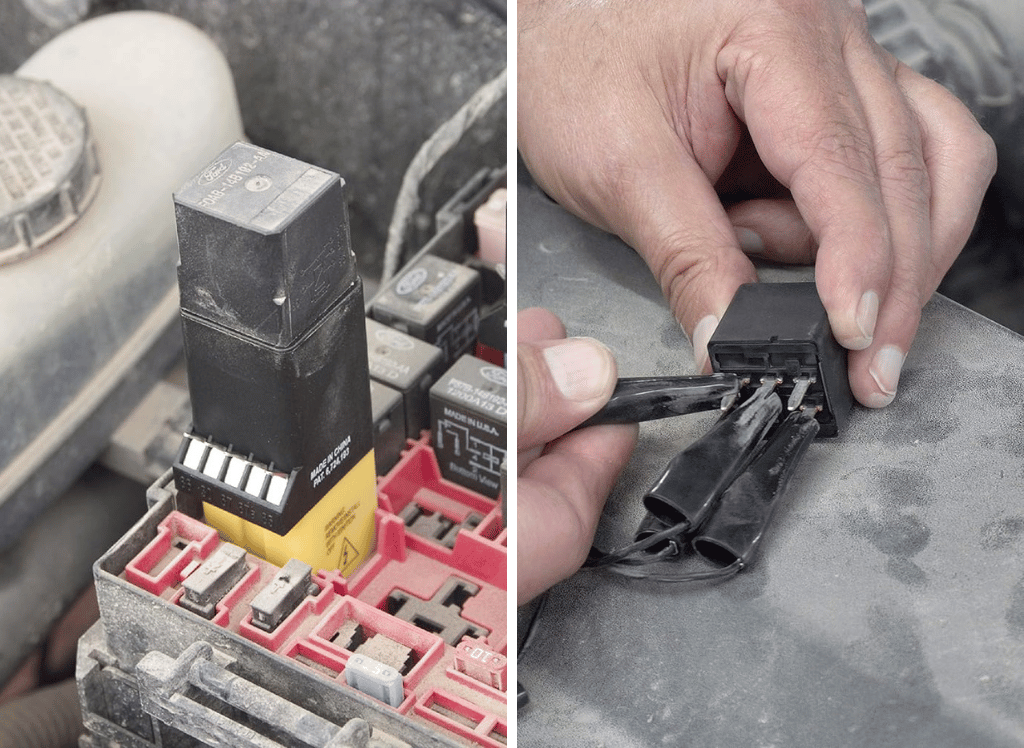
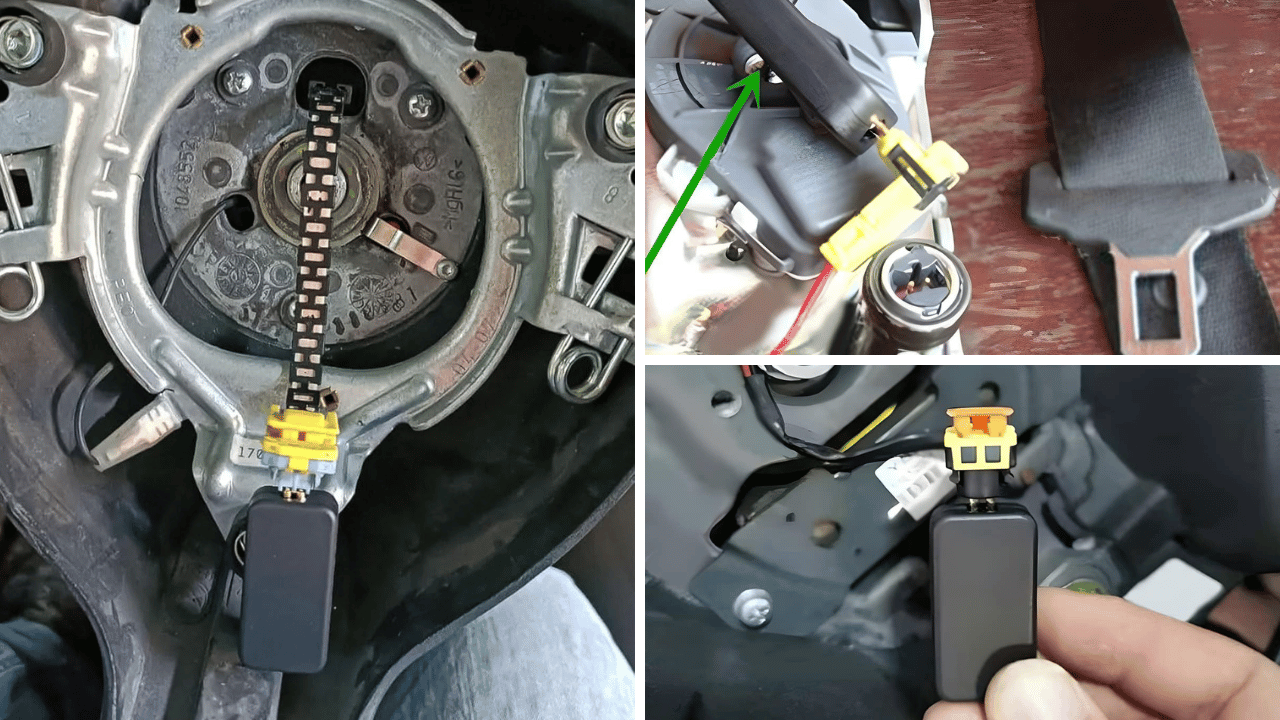
Looking for the best products? We've got you covered! Our editors independently selected each item on this list. mechanicaddicts may collect a share of sales or other compensation from links found within these pages if they buy something (that's how we stay in business). Reviews have been edited for length and clarity; enjoy finding your next favorite thing today!


